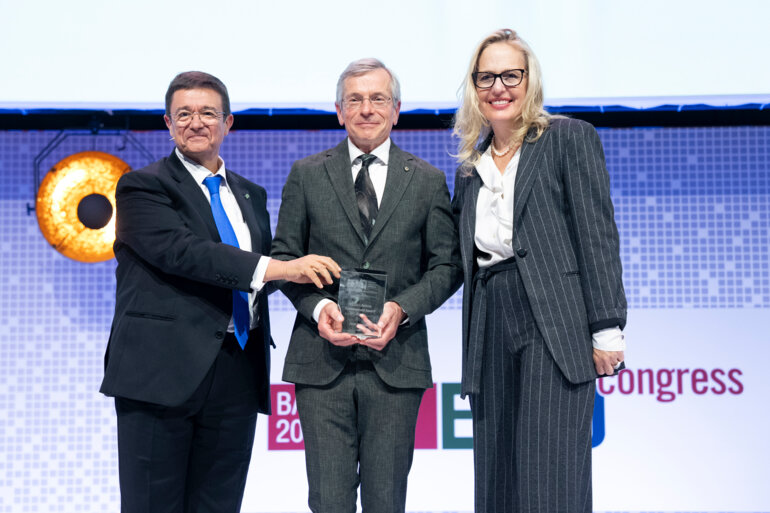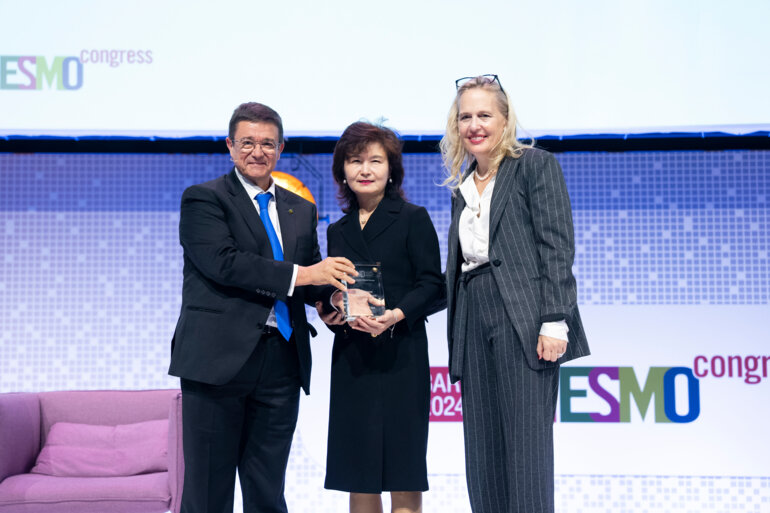
Liquid biopsy plays a growing role in early-stage lung cancer
Research is moving forward to understand the value of this blood-based technology as a prognostic tool

Research is moving forward to understand the value of this blood-based technology as a prognostic tool

For recipient of the ESMO Lifetime Achievement Award, Prof. John Haanen, melanoma research has provided him with a career full of innovation, but there is always more to explore

ESMO Women for Oncology Award Recipient Prof. Myung-Ju Ahn discusses gender equity in lung cancer research

According to Prof. Serena Nik-Zainal, 2024 ESMO Translational Research Awardee it is important to change the mindset of the cancer community to embrace all the information available through genome research

At the ESMO Congress 2024, the ESMO Women for Oncology (W4O) Committee is presenting new findings on female representation in leadership positions

Advances in precision oncology are moving the field towards a biology-based cancer care, and ESMO is supporting the change with a series of tailored resources for medical oncologists

The positive results of the SPEARHEAD-1 trial which showed durable responses of afamitresgene autoleucel in unresectable or metastatic synovial sarcoma granted FDA accelerated approval

With a recent survey in collaboration with SIOPE and the recognition of LGBTQ as a specific patient population in the recommendations for a Global Curriculum in Medical Oncology, ESMO is at the forefront of a more inclusive oncology

In an ESMO-SIOPE survey, only 10% of respondents report they received adequate education in medical school about how to tailor cancer care to this population

Research is moving forward to adapt clinical practice to a new wave of early-onset cases of cancer in the digestive tract
This site uses cookies. Some of these cookies are essential, while others help us improve your experience by providing insights into how the site is being used.
For more detailed information on the cookies we use, please check our Privacy Policy.
Necessary cookies enable core functionality. The website cannot function properly without these cookies, and you can only disable them by changing your browser preferences.